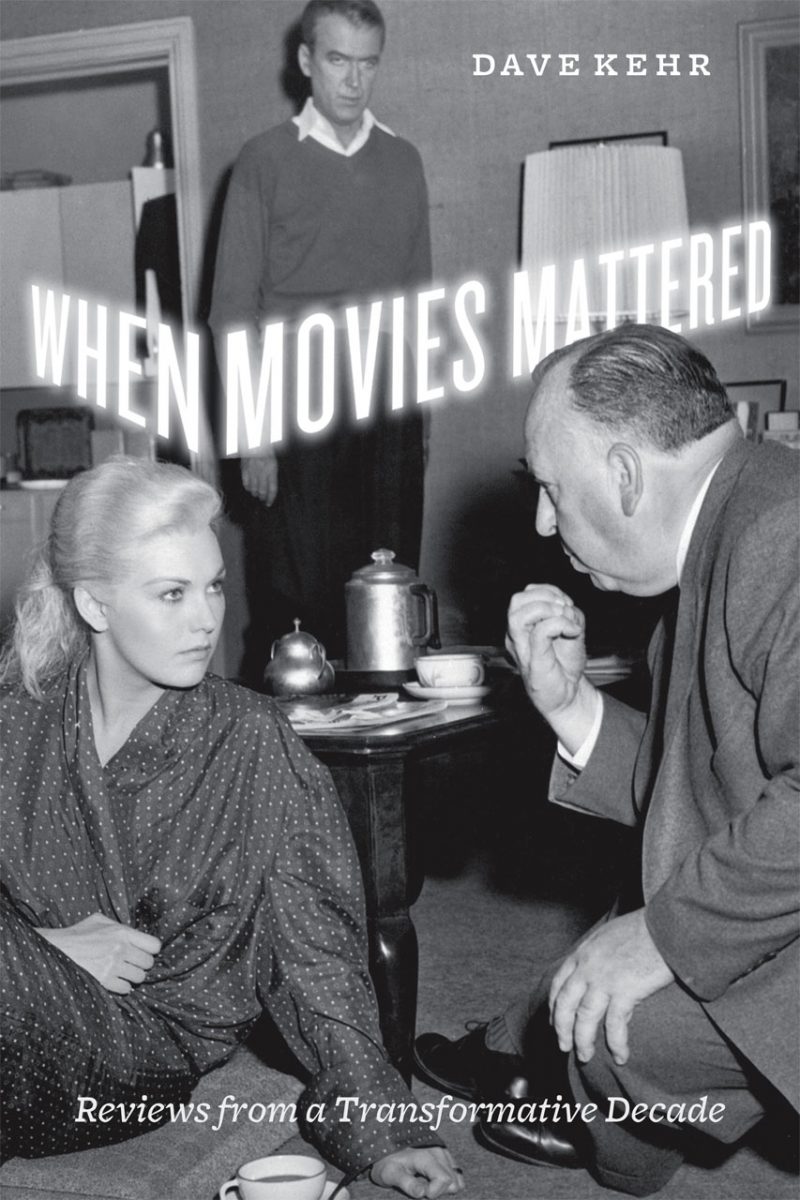In the introduction to When Movies Mattered: Reviews from a Transformative Decade, Dave Kehr writes that the time is gone when “it was briefly possible to write about films with serious intent for a wide, popular audience.” The reception of Kehr’s book since its publication, in April 2011, suggests he’s right: the coverage has inevitably come in specialized film publications, almost all of it from authors who are primarily film critics and who have praised Kehr’s judgment rather than his style. This is a shame, since the collection has much to offer English-language writers regardless of whether they care about film. Far more so than great film criticism, Kehr’s book is great writing: elegant, good-humored, and so carefully worked out as to seem casual. If When Movies Mattered is instructive to film critics (as it has been to this one), this is because it’s a guide for anyone learning the art of argument.
The artistry lies largely in Kehr’s impeccable structures, of which his personal journeys form the bases. Many pieces begin with his first-person narrator facing a seemingly insurmountable problem that the film under discussion will solve: fantasy films lack imagination today, he thinks, until he looks to City of Pirates; the avant-garde and commercial worlds stand at odds in his head until Francisca bridges them. That films can’t be both beautiful and deep is the problem commencing a 1978 review: “Thus far, even the most respectful reviews of Terrence Malick’s Days of Heaven have made the film sound like the cinematic equivalent of a coffee table book, full of ravishing images but strangely devoid of immediate emotion or lasting substance… That was the film I was prepared to see—and, frankly, the film I was prepared to dislike.”
A tension has already emerged, and suspense builds. Kehr considers whether Days of Heaven, a Depression-era love triangle between field hands and their boss, narrated offscreen from a distance of years by the male field hand’s younger sister, is truly superficial; to do so, he looks directly at its surface. “A brief glimpse is all we are given of a particular composition, and then Malick is off to something else, rarely granting us the leisure to contemplate and assimilate the images he puts before us,” Kehr remarks. “If this movie is a coffee table book, someone is turning the pages too...
You have reached your article limit
Sign up for a digital subscription and continue reading all new issues, plus our entire archives, for just $1.50/month.
Already a subscriber? Sign in





